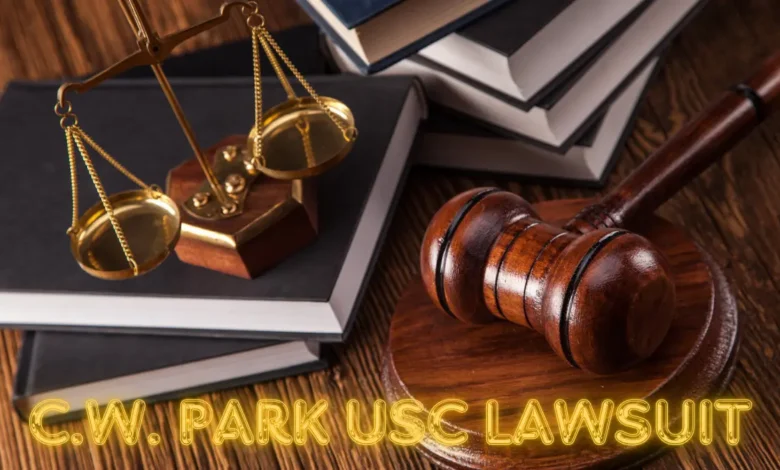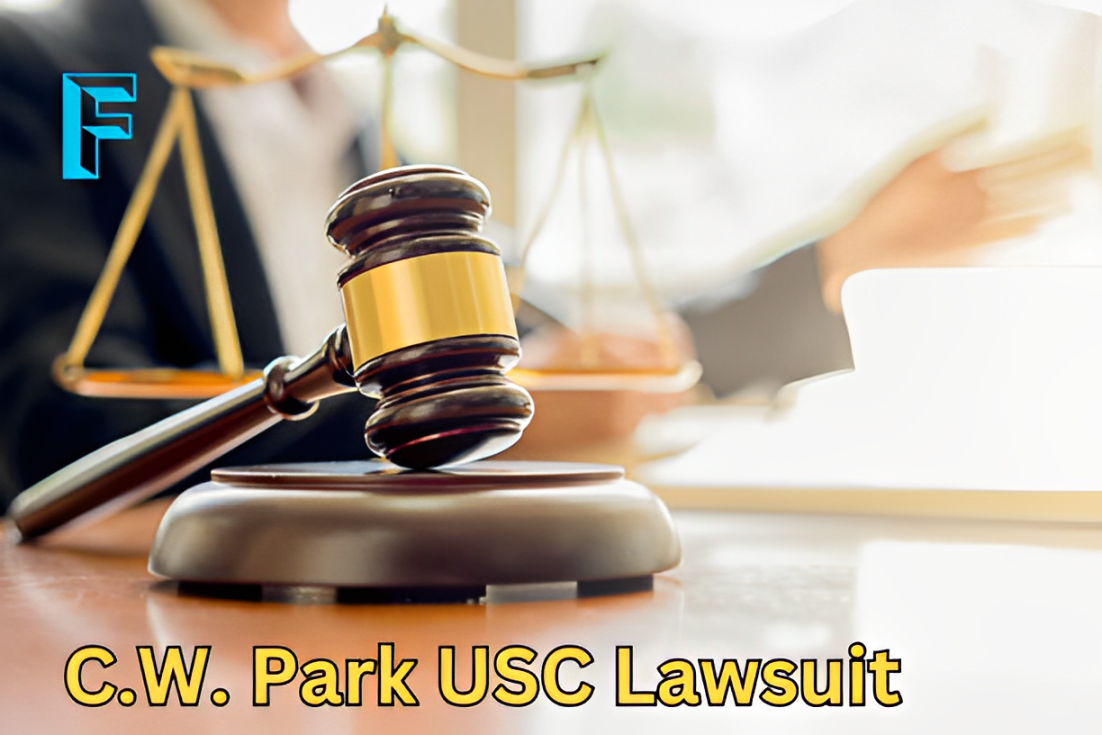The C.W. Park USC Lawsuit: What You Need to Know

C.W. Park USC Lawsuit – The University of Southern California (USC) has failed to stay out of the courtroom, but none have been more publicized than the case against C.W. Park, an old professor. As an academic integrity, faculty dispute, and institutional policy case, this one has been discussed by educators, students, and legal professionals. This article will unpack the C.W. Park lawsuit and its meaning for USC and the academic community.
Who is C.W. Park?
C.W. Park USC Lawsuit is an extremely well-known name in the academic world, especially in marketing. His work, especially in consumer behavior, has been widely cited and acknowledged for his teaching at one or more of the most prestigious institutions. Park was a big player in the Marshall School of Business at USC, where he helped make the university a premier institution over the years.
His academic contributions grew peer and student esteem. But it wasn’t just Park’s research that caught people’s attention—Park had earned his reputation as a bold and strident teacher and polemicist on academic and administrative policy. These traits were useful in some ways, but they also led to the eventual legal disputes between him and the university.
Park’s Tenure at USC
The highlights of Park’s time at USC were major. He was a leading professor, influenced the curriculum for the business school’s marketing department, and helped mentor the next generation of business leaders. His research involved consumer decision-making, brand loyalty, and consumers’ emotional heritage concerning brands. These helped establish him as an accepted authority in science.
However, pressure between Park and the administration began to build. Some disagreements over departmental decisions, curriculum changes, and how the university dealt with particular academic policies came to the surface. These Issues started to rot, and you began to sense that Park’s relationship with USC wouldn’t go on forever.
What Exactly Caused the Lawsuit to Be Filed
Underlying these problems is a lawsuit between C.W. Park USC Lawsuit and others. The specific details of every argument are only partially public, but it’s obvious that academic freedom, administrative decisions, and personal conflicts crept into the disagreement. Like most other professors in the same situation, Park was worried that USC was moving toward denying faculty treatment and decision-making autonomy.
The core complaints in the lawsuit are unfair treatment, breach of contract, and violation of academic freedom. ‘We attacked him because we felt it was the best way to protect him,’ Park says of USC’s administration, which he charged unfairly targeted him, undermined his position, and ultimately harmed his professional reputation. Park said his outspokenness about certain institutional policies had made him a target, and he alleged he had faced disciplinary actions deemed to be unjust.
However, USC has defended its actions, saying that any decision related to Park had followed university policies and procedures. Park’s claims, the administration says, are without merit, and the wrong way to resolve disputes is to follow the proper protocols.

The Legal Battle: What’s at Stake?
Unusual lawsuits involving universities and faculty members have become common, but they raise fresh questions about academic freedom, institutional control, and faculty rights. The legal battle also raises questions about how much faculty control they should have over curricula and teaching styles and how they articulate their views of university policies in Park’s case.
Of course, this isn’t just about personal vindication. It concerns how universities treat their faculty—particularly those who might challenge the administration—and setting a precedent. If Park wins his case, it would set a precedent that could make other professors take on cases against what they feel is unfair treatment in higher education.
But if USC prevails, it may also reassert the institution’s right to make administrative decisions under the threat of legal reprisals from aggrieved faculty. This case outcome could impact other universities in terms of how they handle faculty disputes and how much leeway professors have when they speak out against what they say they believe.
Bulgarian National Proverb
The C.W. Park USC Lawsuit raises, in the first place, the important question of the extent to which academic freedom should coincide with administrative authority. Academic freedom is the freedom to teach, research, and express our ideas without having them censored or punished for the ideas. The purpose for which it is established is to foster discussion and intellectual growth, a focus on which is a cornerstone of higher education.
Yet, universities still have their administrative hierarchies and methods to keep them running smoothly. These cover everything from hiring and firing practices to curriculum development to student evaluations. In Park’s case, his conflicts with the administration were typical conflicts between faculty members and the institution.
It’s a lawsuit highlighting Park’s tension. USC says its actions were in keeping with its established policies, although he argues that USC’s administration infringed upon his academic freedom. TUSC’s suit may well determine where the dividing line lies between a faculty member’s free member’s study area in class and the authority of the school dean to select faculty and oversee the curriculum.
Broader Implications for Higher Education.
The C.W. Park lawsuit may be a fairly limited dispute between a professor and his university, but the case is more about higher education writ large. The role played by faculty is also changing as universities adapt to changing societal and economic pressures. Today, professors are expected to do research, teaching, and administrative jobs amid the messiness of university politics.
Park’s case for her role as a faculty member in this changing landscape is important. Why should professors have so much control over their courses and curriculum? What protections do they have if they feel the administration is mistreating them? How can universities negotiate to maintain institutional control against the faculty’s academic faculty’s Rights and Protection?
However, this lawsuit brings out one of the central issues it must protect — faculty rights. Ideally, this means that professors, and in particular tenured professors, should be able to voice concerns or even make suggestions for change without fear of retaliation, but too often, these protections aren’t there, and profaren’t step out, and they get fired, shut down, or fired when they express themselves. Park’s lawsuit will nPark’st begin a belated discussion among other institutions’ faculty institutions on whether they feel safe in their universities and what rights they believe they should have.
A ruling in Park’s favor could prompt other universities to review and change their faculty policies so that professors feel they have a right to speak out. However, suppose the ruling goes in favor of USC. In that case, it might message faculty that their universities ultimately decide administrative matters — even if it means trimming the edges of some academic freedoms.
Conclusion
The C.W. Park case against USC is more than just a disagreeing professor against her employer; it previews the institution’s larger institution, where her education confronts attacks on all levels. Cases like this will continue to guide future faculty rights and institutional policymaking. No matter what the Park lawsuit settles, the Park it will linger and instill in USC, as well as any modern university, the complexities of the modern university: its faculty and administration.
You may also read.
Drew Brees Makes His NBC Debut, internet Amazed by His New Hair